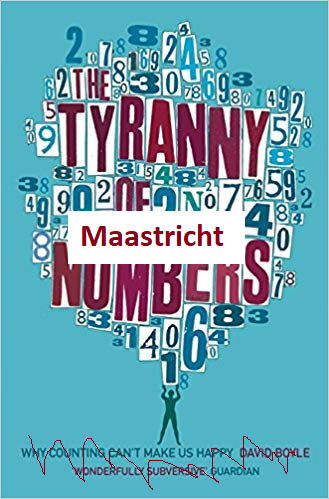László Náray, Istvan Zsadanyi:
Published: 02.16. 2015. (Napi Gazdaság printed, online)
“Ignorance is a necessary condition for many excellent things. The childish joy of seeing what Santa Claus brought for Christmas is a species of joy that must soon be extinguished in each child by the loss of ignorance. When that child grows up, she can transmit that joy to her own children, but she must also recognize a time when it has outlived its value.” (Daniel C. Dennett)
Is it a conscious, deliberate decision that governments want to cut budget deficits and public debt proportional to GDP or is it a kind of ignorance? Is there any sense to reach the budgetary equilibrium or is it like a rituality, when we try to make painful sacrifices in order to get some chocolate from Santa Claus?

Does the balanced budget make any sense under conditions where due to the debt crisis in the private sector the growth generated by spontaneous market mechanisms is insufficient? When households and companies go bankrupt? When important social and cultural purposes and institutions receive no money and when prices do not rise in the midst of shrinking demand? When we have to face the risk of deflation?
Is it truly a “fundamental truth”, as Margaret Thatcher alleged it in 1983, that “the state has no source of money other than the money people earn themselves. If the state wishes to spend more it can do so only by borrowing your savings or by taxing you more…There is no such thing as public money, there is only taxpayer’s money”
Thatcher’s statement is not at all true. In fact, it is false!
The basic truth is that the government could spend on money from its own central bank. In addition, the state would not have to pay back this money to its own central bank, if the central bank renewed the loan ( in other words this debt would be prolonged again and again). It is just like the central bank would be a good, wealthy sibling of the government. The interest on the loan would not be an additional cost because it would be paid by the state to itself.
Prior to the 1980s, when the government wanted to help its people whenever they got into trouble, there were no strict budget constraints, so it could act in a discretionary way to solve the given problem, even in the western, liberal world. Thatcher's point of view was that the government will fail if it tries to solve every problem and cure any pain instead of people resolving their own issues. Let in some good kind of Social Darwinism, so there is a need for a new "framework”, in which the government can only spend that money it can obtain from the taxpayers. Let’s go back to the past when the gold was legal tender and ruled the world!
To achieve this operational framework, they prohibited the central bank from financing the government (the "deficit") directly. This is the idea of "central bank independence". They ordered the central bank to fight inflation as its first priority (this is the practice of "inflation targeting"). To strengthen this neoliberal idea, in 1992, the Delors Committee added two target ratios that narrowed the government's residual fiscal room for maneuver: the 3 % of GDP deficit and the public debt to GDP ratio of 60 %. These have been included in the Maastricht criteria.
Countries with similar norms may become insolvent at any time even in their own currencies. They founded the possibility of "state bankruptcy", so the tyranny of target numbers has arrived. Traders started to speculate with potential deficits and expected austerities, more and more nations began to depend on the mood swings of the market. In 1990 only 7 countries used rules with neoliberal philosophy and by 2010 some 80 states have restricted themselves in a similar way. Maastricht logic ratios have become market-orientated fundamentals, but the market itself is an abstract concept which cannot think. Only traders can, but they are just traders, not legislators. The traders can only think about the consequences of the real-time data and compare them with the target numbers. (This is called as "adaptive expectations"). The target numbers were created by the legislators. In this sense is the market always right?
In 2002, the Prospect Theory of Kahneman-Tversky was awarded the Nobel Prize in Economics. This shows that people have responded to a particular problem in different ways depending on how the given problem was depicted.
“Framing a problem” has a reality shaping power. In our series of articles, we present a viewpoint from which Thatcher’s neoliberal kind of "problem framing" was a necessary condition for excellent things – at least for a period of time, but to extend this microeconomic approach to the macro-economy as dogmas forever, was a bad idea from the very inception. We “must also recognize a time when it has outlived its value.” The forced imposition of the Maastricht targets was not based on an appropriate axiom. Thatcher's above-cited claim is fake and outdated: it likely results in individual and governmental decisions that, overall, restrain the economy. For example, if everybody, even the government saves money then nobody will spend.
In spite of the fact it is fake, Thatcher's claim expresses the neoliberal viewpoint of spontaneous market mechanisms, which, as a problem framing, was able to successfully stop politicians who were inclined to fiscal alcoholism, or those who would have approved all social demagogic or industry subsidising proposal until the 1980s in the western countries with soft fiscal rules, when the institution of social security and well being was under construction.
This new rule of thinking that refers only to the resources that can be collected from taxpayers was a new invention in the fields of economic propaganda. Those from this type of problem-framing school consider free-market competition as a prerequisite for promoting energy and cost-effective innovations. In this respect, economic history has indeed confirmed neoliberal expectations - for a while.
During the Cold War years, those who opposed the neoliberal laws that transformed the government into a market-dependent factor in the hands of traders were called “socialist” because in the 1980s, in addition to demagogic union demands, wage-price spiral inflation seemed to be the main moral hazard of capitalism.
Albeit the economies have been successfully released from the wage-price vortex, by 2008 they stagnated, their prospects have been undermined by the global consensus on balanced budget legislation: savings managers should be afraid of increasing sovereign debt due to the possibility of bankruptcy.
One of the means of solving the inflation problem has created a new problem: sovereign debt crises have developed.
However, economic history is that capitalism is not necessarily neoliberal and not necessarily forced to budget-oriented target numbers.
The founding fathers of the euro were primarily politicians, none of them became a Nobel Prize-winning economist. The arguments for the logic and internal coherence of the Maastricht criteria (Mc) were not presented or published.
The scientific basis for it has remained dubious. We should consider it as a belief system of those very important persons in charge in the 1990s. It was born by the economic spirit of the early 1990s and it was legitimized by political authority.
There was some search for the internal coherence of the Maastricht numbers in the late 1990s. The profession found that the ratios were likely to be formed because, at the time of their birth, in 1992, the average future growth rate of the countries signing the contract was estimated to be around 5 % (3 % increase + inflation around 2 %). Keeping or decreasing the 60% public debt level to GDP is the pledge of the financial stability according to the creators, thus resulting in a tolerable deficit with a 3% ceiling (with that supposed 5% growth).
The target numbers were based on considerations that seem realistic at the time of their definition but have no deeper content. If with the 22-year-old methodology, we would calculate a tolerable deficit given by the recent 95-98 % public debt ratio and 2% GDP growth, we would tighten it to about 2%.
With the current 3 % deficit limit, it would take about 10 years for the public debt ratio to be around 60 %at a growth rate of 5%. Why do you need a 60 %debt ratio and why do you need to achieve it in ten years? There is no economic explanation for this.
Is it good legislation, if the weaker the economy, the more money we should withdraw from it, even if it is not a wage-price spiral that causes the slowdown? According to an IMF study, the 1 % fiscal cut back on average resulted in a 1.3 % decrease in GDP in the countries surveyed.
Albeit these target numbers are nonsense, respecting the rituals of market traders which have been adapted to the current institutional determinations, it would be risky for a single government if it were to separate itself from the tyranny of the Maastricht numbers without being backed by a majority consensus. We need a new consensus on how we should represent and interpret our new problems. The creature turned against its creator: the 22 years old criteria nowadays cause the destructions of welfare institutions while being unable to ease the tension on labor -markets.
Instead of income convergence, we find divergences between EU regions. One-third of Eastern European society lives below the income level corresponding to the pan-European minimum. The divergence has become a source of migratory tensions and thus strengthens immigration and anti-EU voices.
No dictatorship is desirable. Neither is the tyranny of these nonsense Maastricht target numbers desirable.
In our series of articles, we will argue that the Maastricht criteria themselves have played a major role in the emergence of increasing income distribution inequalities and the private debt crisis; that is why it becomes the source of further troubles when the decision-makers tried to force these target numbers with greater intensity.
Government politicians who are respectful of the institutional framework are not responsible for this mess, because even "common sense" dictates "don't spend more money than you can earn" and "do not try to go against the mass"!
However, that which sounds reasonable at a household level, does not necessarily make sense in a relatively closed economy such as the EU: if everyone starts to save money at the same time, then consumption decreases, the economy shrinks, the government does not get enough tax revenue, and the Maastricht ratios become worse.
In our view, the time has come to make our attitudes more conscious of the economic targets followed automatically by domestic and international institutions, and if we succeed in building a majority consensus, let us dare to go beyond them.
You may also interested in:
The origin of the target numbers of Maastricht Criteria
Part I: The fiscal creature turned against its creators
Part II: The uncontrolled philosophy of the inflation policy
Part III: Crisis because of the target numbers?
Part IV: Crisis management or panic excitation?
Part V: Clumsy clamping of the Maastricht criteria




